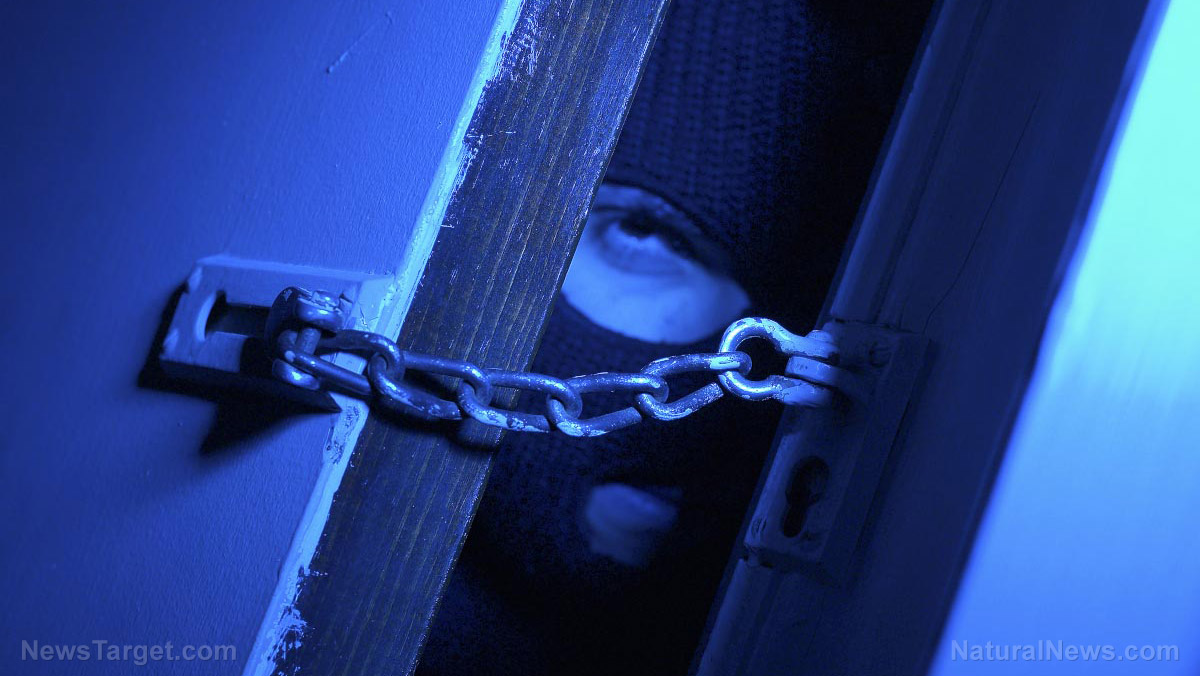
Whether you live in an apartment in the city or a sprawling mansion, crime is inevitable. While there is no way to ever prevent crime from happening, you can fortify your home and educate your whole family on safety measures to prepare them for any SHTF scenario. (h/t to ApartmentPrepper.com)
Keep an eye out on these red flags. If you notice several of them in your neighborhood, it may be time to improve your home security.
Management frequently issues safety warnings.
Pay attention to announcements from management, especially those concerning safety warnings. Stay informed about multiple occurrences of theft and take measures to protect yourself and secure your home.
Multiple tenant complaints and frequent police activity.
Talk to your neighbors. If there are reports of frequent thefts and police activity, your area could have many safety issues.
Heavy foot traffic.
It's normal to see other residents in your apartment building as you enter and leave the premises. While it's impossible to memorize all of their faces, if there are more strangers walking on the grounds to get from the street to another area, this means non-residents also have access to the apartment grounds.
The electric gates are always open.
Electric gates in your residence should be kept closed at all times and only residents should be able to open them. If your security gate is left open because it's broken, anyone can enter the area.
You keep finding flyers on your door.
A secure building should prevent vendors from coming in freely and leaving flyers. If you find a lot of flyers on your front door, it means strangers can come and go as they please in your neighborhood.
Improving your home security
If you believe your apartment is no longer safe, fortify your home to discourage burglars. Here are some suggestions to keep your home safe from trespassers.
- Pay attention to your surroundings. Listen to management announcements and don't let your guard down.
- Get to know your fellow tenants and direct neighbors. You don't have to be best friends, but knowing their names and faces will make it easier to determine if there are strangers in your area.
- Inspect hallways, stairways, and common areas (e.g., the laundry room). If they don't have proper lighting, let your landlord know.
- Check your lease before making any changes and reinforce your doors and windows and invest in home security gadgets.
- Get a dog to improve your home security. (Related: The 7 best dog breeds for survival and protection.)
- Teach your children to only open the door for family members or close friends who know the designated "password." Tell them that they should never open the door to strangers.
- Always lock your doors and windows.
- Before you open a door or your garage, scan the area. Some burglars are known to follow people inside their homes.
- To discourage burglars, avoid anything that might attract attention, like a bulky purse. Your bag may just be full of clutter like a book, makeup, and old receipts, but to a thief, it may look like your bag is hiding a lot of money or expensive devices. Clean out your bag and dress simply.
- Get a self-defense weapon like pepper spray, a taser, or a concealed gun. Learn how to use your chosen weapon properly so you can protect yourself.
- If you're going shopping, lock your vehicle and do not leave items inside the car. If you should leaving anything behind, lock them up in the trunk. Some thieves target cars in parking lots that have stuff left in the backseat.
- Before you head to your car in the parking lot, get your keys ready. Don't waste time fishing for your keys in your bag because someone might take advantage while you're distracted. If you're exiting a store at night, walk with someone or ask security to escort you.
- Don't announce your plans on social media. Thieves could be waiting until you leave to ransack your home.
- If you believe the area is now unsafe to live in, move. This may seem like a drastic choice, but your safety should be your priority.
No neighborhood is 100 percent safe, but this doesn't mean you should constantly cower in fear and hide in your apartment. Arm yourself, stay alert, and improve your home security to keep your whole family safe.
Sources include:
Please contact us for more information.
















